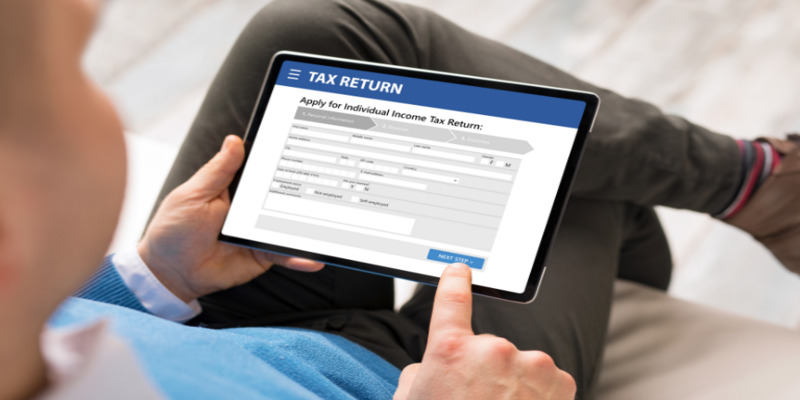How to Avoid Capital Gains Tax on Business Sale
Triston Martin
Oct 21, 2023
Are you considering selling your business and want to know how to maximize profits by minimizing taxes? Capital gains from a sale can make or break an entrepreneur's bottom line, but it is possible to save thousands of dollars in capital gains tax.
This article discusses accurately accounting for and avoiding capital gains when selling a business. We'll also explain why these measures should be taken as soon as possible since capital gain rates vary between short-term (held for 1 year or less) versus long-term investments (held for over one year).
By following the steps outlined here, not only will you benefit financially from your hard work, but you can reduce your total taxable liability while taking full advantage of any available deductions.
How Is the Sale of a Business Taxed?
The taxation of the sale of a business can vary depending on the structure of the business and the specific tax laws of the country or jurisdiction in which the sale takes place.
However, here are some general considerations regarding the taxation of a business sale:
Capital Gains Tax

In many countries, the sale of a business may result in capital gains tax. Capital gains tax is typically imposed on the profit or gain realized from the sale of a capital asset, which includes the sale of a business.
The capital gain is generally calculated as the difference between the sale price of the business and its adjusted cost basis. The tax rate applied to capital gains can vary depending on factors such as the duration of ownership and the jurisdiction's tax laws.
Ordinary Income Tax
Certain sale proceeds may be subject to ordinary income tax rather than capital gains tax. For example, if the sale includes inventory, accounts receivable, or other assets considered ordinary income assets, the gain from their sale may be taxed as ordinary income.
Depreciation Recapture
If the business owner has claimed depreciation deductions on assets used in the business, such as equipment or real estate, a portion of the gain from the sale may be subject to depreciation recapture.
Depreciation recapture rules require the recapture of a portion of the depreciation claimed over the years, and it is typically taxed as ordinary income.
Seller Financing
In cases where the seller provides financing to the buyer by allowing them to make payments over time, the tax treatment may vary. Sometimes, the seller may be required to report the portion of the sale proceeds received in each tax year as the payments are made, resulting in tax liability spread over several years.
Qualified Small Business Stock Exclusion
Some jurisdictions provide tax incentives for investments in certain types of small businesses. For example, in the United States, the sale of qualified small business stock may be eligible for a capital gains exclusion under specific conditions.
It's essential to consult with a qualified tax professional or accountant who is knowledge able about the tax laws in your specific jurisdiction and can provide personalized advice based on your circumstances.
Taxation can be complex, and additional considerations and exemptions may apply to the sale of a business, depending on factors such as the nature of the business, its assets, and the terms of the sale agreement.
How to Avoid Capital Gains Tax on the Sale of Business

While it is impossible to completely avoid capital gains tax on the sale of a business, you can employ strategies to reduce the amount of tax liability.
Here are some options to consider:
Utilize the Section 1202 Exclusion
In the United States, the Section 1202 exclusion allows for a potential exclusion of up to 100% of capital gains on selling qualified small business stock (QSBS). To qualify, the stock must meet specific criteria, including being issued by a domestic C corporation and hold for a minimum period.
Consult a tax professional to determine if your business qualifies for this exclusion.
Utilize Capital Gains Tax Exemptions
Some jurisdictions may offer exemptions or reduced tax rates for certain types of business sales, particularly if the business is classified as a small business or if you meet specific criteria related to the nature and duration of ownership.
Research and consult with a tax professional to understand any available exemptions or preferential tax treatment in your jurisdiction.
Employ a Section 1031 Exchange
In the United States, a Section 1031 exchange, also known as a like-kind exchange, allows for deferral capital gains taxes when selling business or investment property and reinvesting the proceeds in similar property.
This strategy can be complex and requires careful adherence to specific rules and timeframes. Consult with a ta. x professional and possibly a qualified intermediary to ensure compliance with the requirements.
Structure the Sale as an Installment Sale
Instead of receiving the entire sale proceeds upfront, you can negotiate with the buyer to structure the sale as an installment sale. This means you receive payments over time, spreading the capital gains tax liability over multiple tax years.
Consult a tax professional to understand this approach's potential benefits and implications.
Offset Capital Gains with Capital Losses
If you have other investments or assets that have incurred capital losses, you can utilize those losses to offset the capital gains realized from the sale of your business. This strategy, known as tax loss harvesting, can help reduce your overall tax liability.
Consult with a tax professional to understand the rules and limitations associated with offsetting capital gains with capital losses.
Plan for Qualified Retirement Accounts
Suppose you have a qualified retirement account, such as a self-employed 401(k) or a Simplified Employee Pension (SEP) IRA. In that case, you can roll over the proceeds from the sale of your business into these accounts, deferring the capital gains tax.
This approach requires careful planning and adherence to specific rules and contribution limits. Consult with a tax professional to determine if this strategy suits your situation.
It's crucial to note that tax laws and regulations can be complex and may vary by jurisdiction. The strategies mentioned above may have specific eligibility criteria, limitations, and requirements that must be met.
It's highly recommended to consult with a qualified tax professional or accountant who can assess your specific circumstances and provide personalized advice based on the applicable tax laws in your jurisdiction.
FAQs
Can I offset capital gains with business losses?
Yes, you can offset capital gains with business losses. This common tax strategy involves deducting losses from your income to reduce your taxable amount for the year. However, it is important to note that unused losses cannot be carried forward and used in future years.
How is capital gain tax calculated?
Capital gains tax is calculated by subtracting the purchase price of your asset from the sale price. The resulting gain or loss is then added to any other income sources for the year and taxed as part of your normal income tax rate. Different tax rates will apply depending on how long you owned the asset.
How can I avoid capital gains tax on business sales?
There are several ways to avoid capital gains tax on business sales. The most common way is to reinvest the proceeds into another qualifying asset, such as real estate or stocks.
Conclusion
Selling a business is never easy, but taking the time to accurately account for and avoid capital gains tax can make the sale much more lucrative. While capital gain rates vary depending on how long you've held onto your business, you can minimize taxes and maximize profits by implementing some of the strategies discussed in this article.
If you want to learn more about our recommendations around avoiding capital gains tax when selling a business, visit our website for additional information on minimizing taxes with smart financial planning.







